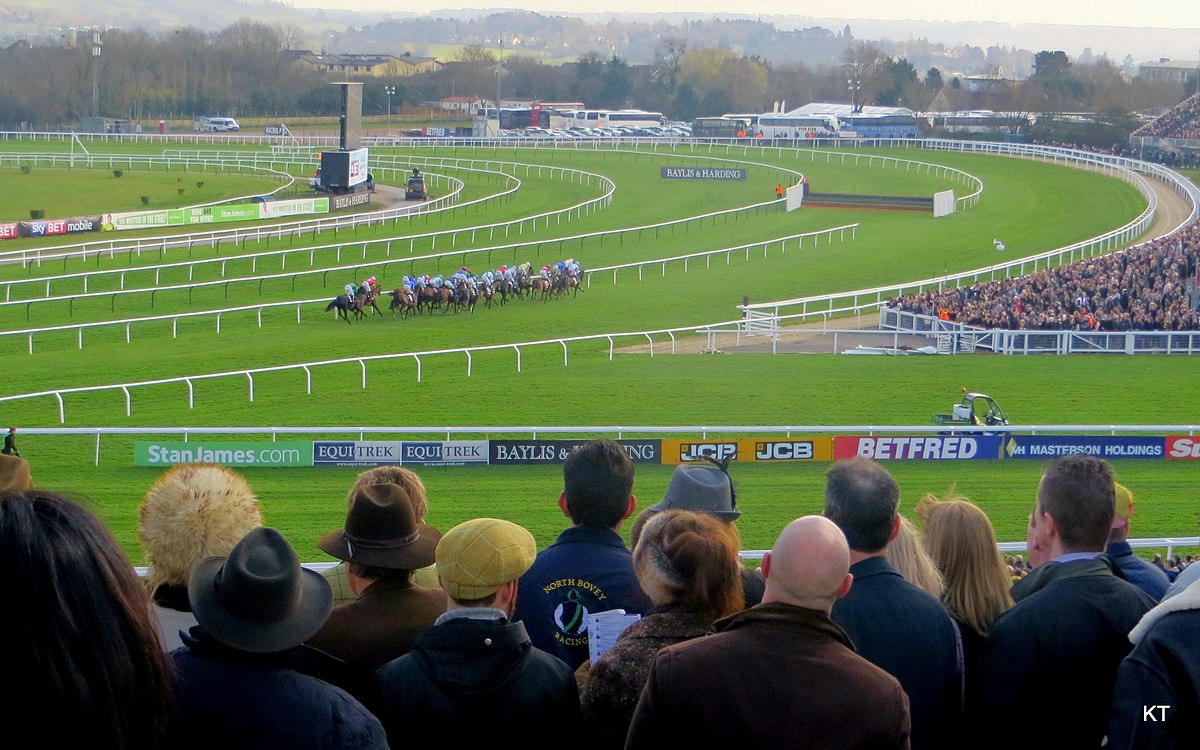COVID-19: British sports ‘shut down too late to save lives’
Two major sporting events in March contributed to an increase in Covid-19 deaths in the UK, a leading scientist has said.
Professor Tim Spector, who is leading the UK’s largest Covid-19 tracking project, said that failure to lock down the Cheltenham Festival and Liverpool’s final pre-lockdown match against Atletico Madrid in the Champions League, led to local coronavirus “hotspots”.
There was a higher number of cases in both Cheltenham and Liverpool
Data from an app used to report Covid-19 symptoms showed that Cheltenham and the North West showed a surge in reports in the time after the events. Compared to their surrounding areas, there was a higher number of cases in both Cheltenham and Liverpool from 22 to 29 March.
According to the professor, the two events “caused increased suffering and death that wouldn’t otherwise have occurred”.
Professor Spector, who works in genetic epidemiology research, said: “Two weeks after the Cheltenham Festival and the Liverpool game against Atletico Madrid, we saw the number of people reported COVID symptoms in the COVID Symptom Study app from those particular areas increase and both areas became key hotspots in the UK.
“This suggests that both events were, in part, a cause for the spread of Covid-19 in those areas.”
Boris Johnson did not announce lockdown measures until 23 March
The Festival was held from 16 to 19 March, and the football game took place on 11 March. Despite several European countries and cities already being in lockdown at this point, Prime Minister Boris Johnson did not announce lockdown measures and his “stay at home” message until 23 March. When Johnson ordered these measures, the UK had 6,650 Covid-19 cases and 336 deaths.
On 9 March, two days before the Atletico match, Culture Secretary Oliver Dowden rebuffed calls for a ban on mass gatherings.
On Sky News, he said: “We’ll take evidence from the experts and base our decisions on the facts that we receive from them, particularly the chief medical officer [Professor Chris Whitty].
“I think in terms of postponing mass sporting events or cancelling them, I think it’s very premature to talk about that sort of thing. We’ll be driven by the evidence, but there is no evidence at the moment to justify such cancellation.”
A football match in Bergamo has been termed a “biological bomb”
In April, Dr Sue Smith, Cheltenham’s senior racecourse medical officer, said: “It’s simply not possible to know how and where someone who has tested positive for Covid-19 has contracted it.
“The standards of hand wash and hygiene at the Festival were of the highest level and all measures were taken in accordance with daily updates from Public Health England.”
Responding to Professor Spector’s claims, the government said that the events took place within “clear guidance” given at the time.
A spokesman for the Department for Digital, Culture, Media and Sport said: “It is our absolute priority to protect people’s health and our advice to the public is based on direct continuous consultation with scientific and medical experts.
“There are many factors that could influence the number of cases in a particular area, including population density, age, general health, and the position of an area on the pandemic curve.”
The impact of sporting events has been reported in other countries. A football match in Bergamo, Italy, has been termed a “biological bomb” by scientists. A third of the population of Bergamo, in the Lombardy region, went to the game a few days before the first reported case of the virus in the country. The region was subsequently worst hit by the pandemic – of the nearly 33,000 Italian deaths, more than 15,000 were in Lombardy.

Comments